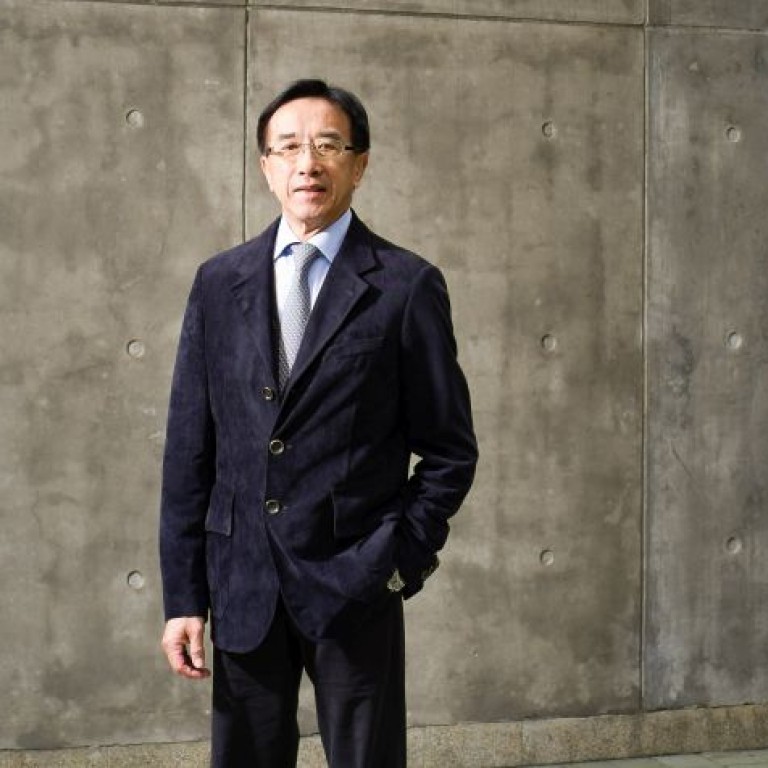
James Tien Does Not Strive to Please Beijing
The former Chairman of the Liberal Party is now a Legco member and businessman—he resigned from the position in 2014 after urging Chief Executive Leung Chun-ying to step down.
...I was born in 1947 in Shanghai. My family came to Hong Kong in 1949. Like many other immigrants, we had no faith in the Communist Party. My dad wasn’t rich when he first came to Hong Kong. But he had studied in the UK before and spoke English well, which was a great advantage in Hong Kong. There weren’t many university graduates, let alone a Chinese person who had graduated in the UK. To become a successful person, knowledge is really important. He first started working for others, then in import and export trading before starting his own factory, Manhattan Garments. He named it Manhattan because he started the company with an American friend from New York.
I remember that by around 7 years old, my family had a better life. We had a small factory when I was 11 and we became well-off. I was a good kid back in school. I was the youngest in my class. I’m not tall enough to be aggressive. Small people are always quiet. As I remember, going to school was such a happy thing. Society has changed a lot. Nowadays kids get much more pressure. The first time I left town was when I went to study abroad in the U.S. at age 17. Before that I’d never taken a plane or a ship.
My classmates all wondered why I would become a politician. I was introverted and not very academic. But during seven years of studying in the U.S., I changed. Nowadays no one thinks I’m an introvert. Some may think I’m too nosy, the “bad boy” of the pro-government camp. My father was appointed a Legco member from 1975-85. Hong Kong was then reliant on the textile industry. He represented the government when negotiating export quotas with the U.S. and Europe.
I took over the factory after I finished my master’s degree. I had to handle labor, environmental and traffic issues—I also got the chance to meet government officials. I’ve been a member of Legco since 1988. Back then I represented the industrial constituency. The British Hong Kong government also supported industry. So of course I was pro-government. In recent years, as a businessman, I’ve belonged to the Liberal Party.
Without public support, it’s not worth taking part in politics. So my point of view comes from the same direction as the public. Medical issues, public housing, education and welfare: It’s got to be balanced. People in Hong Kong may think I’m a pro-government, bourgeois rich man. But I dare to oppose what the government is pushing, such as TSA [Territory-wide System Assessment exams] or the Copyright Bill—I won’t blindly support them. But compared to the pan-democratic camp
I’m rather mild. Travel makes me feel younger. As my textile business turned into real estate, I haven’t had to travel overseas for business. Now I’ve started to enjoy it. Nowadays the most fun I have is hanging out with my grandchildren. I’m quite disappointed in what the government has done. It’s a diverse society—rulers should be mild and listen to public opinions. Even if they can’t meet the public’s expectations, they should explain themselves. It makes society less divided.
In recent years, Occupy Central, the Yellow/Blue camp and localists have become the main focus. Youngsters have lost confidence—Hong Kong used to be the leader, but now look at successful mainland companies like Alibaba and Tencent. From new technologies and banks to movies, singers and even painters, China has more talent in all professions.
Hong Kong people have lost their confidence to compete, and hence have become more self-protective. I don’t think it’s good for Hong Kong.I totally agree that Hongkongers should have the priority in public housing and welfare.Yet Hong Kong is a free market—we can’t blindly get priority for everything.We should be more confident in ourselves.
There are filibusters every day in Legco. It’s not constructive at all. The relationship between Legco and the administration is really bad. The government really has to put more effort into building the relationship. [If we don’t move forward], cities in the mainland such as Guangzhou, Shenzhen and Shanghai will develop faster than Hong Kong. Then it’ll be too late to regret it.
I will not run for Chief Executive. Hong Kong lacks political talent. The old-timers are entering their 70s. I wish that Hong Kong had more young leaders. Energy will always bring better things to Hong Kong.

